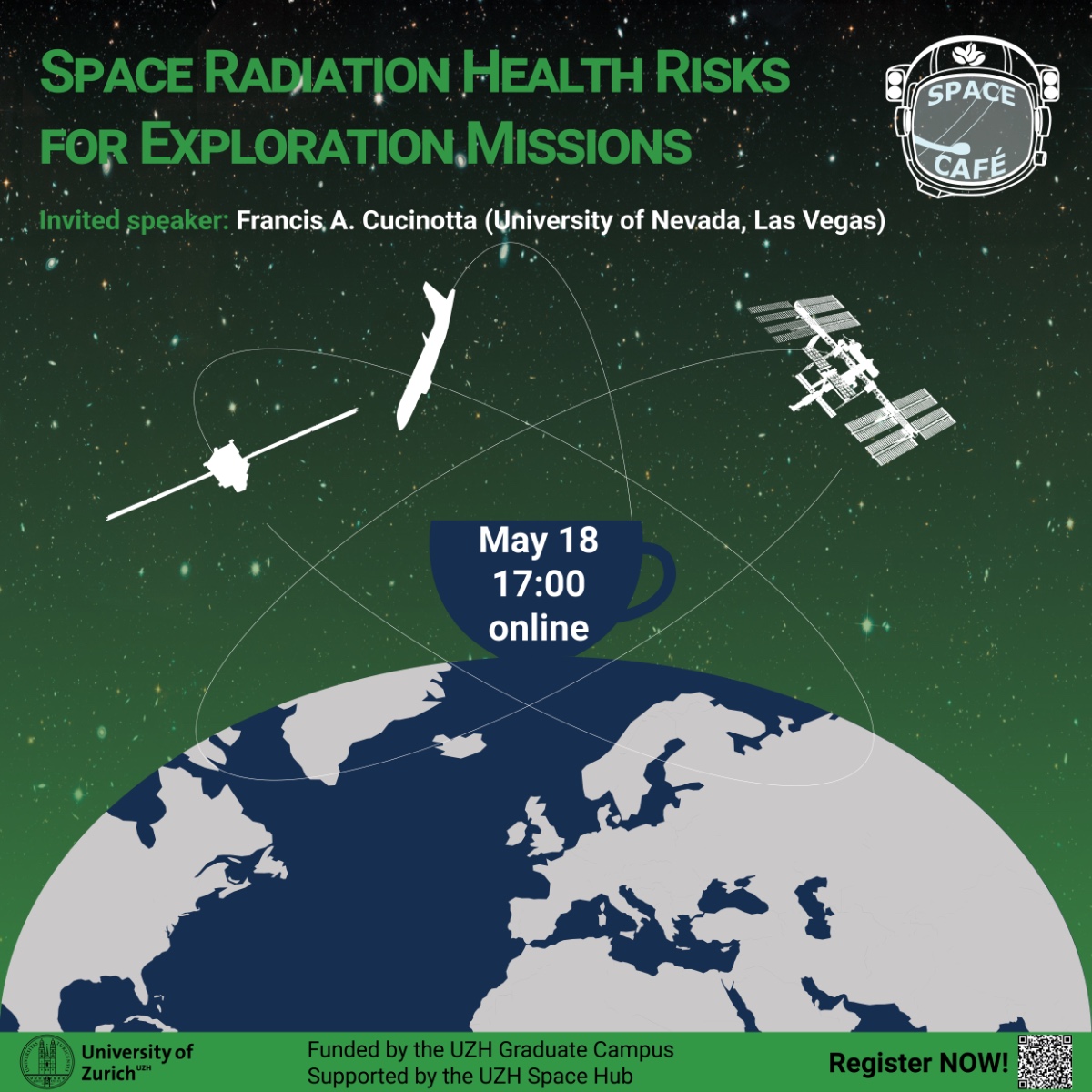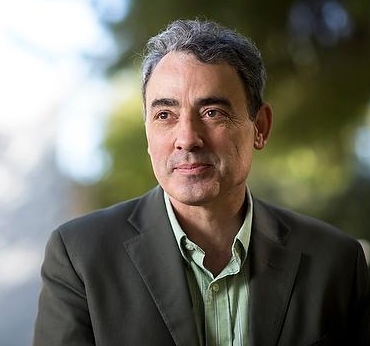Space Radiation Health Risks for Exploration Missions

Astronauts face many risks on long duration missions, ranging from cancer up to cognitive detriments. But how can those risks be quantified and what risks do astronauts face? These and many more questions will be answered at our next Space Café by Dr. Cucinotta, who worked at the NASA Space Radiation Lab and led NASA’s biodosimetry program for the International Space Station. Dr. Cucinotta is an expert in this field and has worked as a research scientist, radiological health officer for spaceflight, manager and chief scientist at the Space Radiation Research program by NASA.
Join us on May 18, 2022, at 17:00, to learn more about the health risks that must be considered for long term space missions. Please note that this event will only take place online and later than usual, as our speaker is joining us from the United States of America. Registration is free at the end of this page.
More about Space Café event series.

Speaker
Dr. Francis A. Cucinotta is a professor of Health Physics at the University of Nevada, Las Vegas. He received his doctorate in nuclear physics from Old Dominion University during 1988. He worked at NASA from 1990-2013 in several positions including research scientist, radiological health officer for spaceflight, and manager and chief scientist for the Space Radiation Research Program. Dr. Cucinotta was NASA’s manager for the construction and operation of the NASA Space Radiation Lab (NSRL) at Brookhaven National Laboratory. He developed the astronaut exposure data base of organ doses and cancer risk estimates for all human missions from Mercury to the International Space Station (ISS). He led NASA’s biodosimetry program for the ISS and discovered the association of increased incidence of cataracts in past space missions. He developed the space radiation quality factors and risk models approved for use at NASA.
Talk
The health risks from galactic cosmic ray (GCR) exposures to humans carries large uncertainties due to the qualitatively distinct microscopic energy deposition, early biochemistry and signaling of heavy ions compared to low linear energy transfer (LET) radiation, such as X-ray or gamma-rays. We review information on cancer and non-cancer risks for space travel. Animal studies of solid cancer risk estimates for GCR suggest fatal cancer risks for long-term space missions could approach 20% fatality with shorter latency than cancers from low LET radiation. Space radiation risks for non-cancer effects are diverse in nature. The risk of acute radiation syndromes from solar particle events (SPE) are largely avoided using passive shielding and alert dosimetry. A more important concern is the risk of cognitive detriments. We review results from heavy ion accelerator-based animal experiments with heavy ions on cognition that suggest possible risks for long duration missions such as a Mars mission, and model developments for risk prediction.